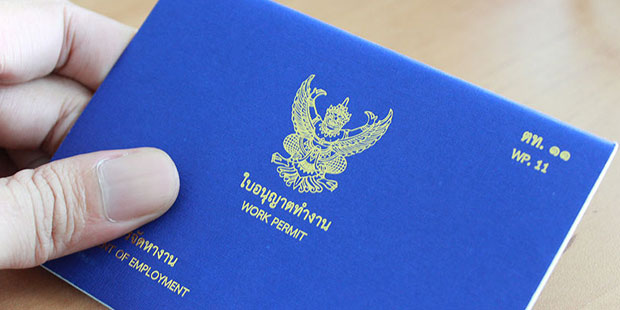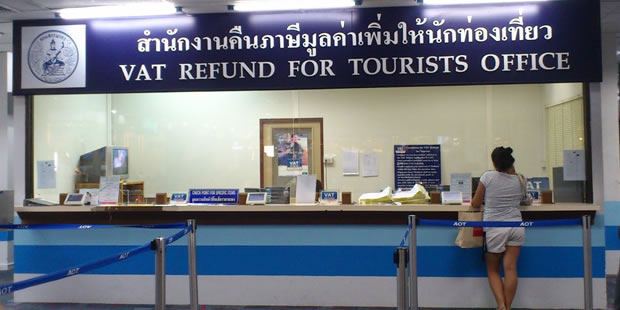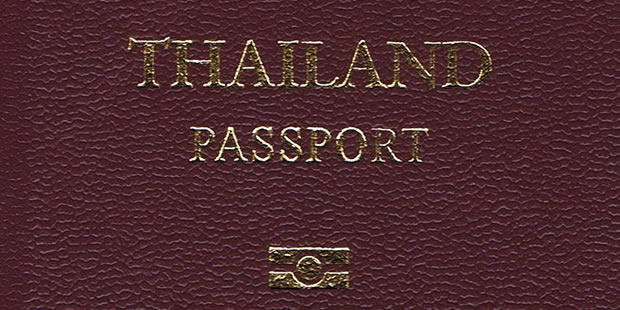121

The ownership of land in Thailand is regulated by the “Land Code” ( the cadastre code ) exactly the article ” BE 2497 , 1954″ , by the Civil and Commercial Code , the reform on agricultural land of 1975 ( Act BE 2518 ) , and the Thai Ministry of the Interior .
These laws stipulate that a foreigner can own a land in Thailand under his own name , and has the right to acquire the building itself.
However, if a foreigner wishes to purchase land in Thailand to build a property, two solutions available to them :
The first solution. The land can be a renewable lease agreement for successive periods of thirty years each. Possession of the said land is then ensured by the possession of the property that is built . The original owner of the land must wait until the contract comes to an end before you can enjoy again during this period the use of the land is linked to the construction and property deeds that result. To be fully recognized , a lease of more than three years shall be duly recorded in ” Land Department ,” the equivalent of the cadastre , which indicates the payment of the registration fee which is paid in the form of tax stamps , this tax is based on the percentage of the rental value declared , cumulative duration of the contract. The original lease remains valid even if the ownership of the land changed hands while the contract is still ongoing. The two signatories of the lease may, by mutual agreement define an evergreen clause , although this clause can not be registered in the cadastre ( Land Department ), it remains quite legal and enforceable by the Thai law .
Second solution . If a stranger runs a company in Thailand , it can then use this company, whether limited or not responsibility , to acquire property and even land . The land will become the property of this company. “Company limited ” limited liability company is also the most common legal form in Thailand when it comes to business in general , especially when it comes to acquire properties . The Thai law requires that at least 51 % of the shares of the same company are held by persons of Thai nationality , and anyway , any company whose rates of foreign share exceeds 40% and becomes the owner of land on Thai territory will automatically be investigated by the ” central Land Office ” Bangkok ( Thailand central cadastre ) to ensure that the company has not made the subject of a fraudulent scheme .
TITLES
There are several types of title in Thailand, and the majority of them do not allow the construction. The ‘ Chanot , “the” Land Title Deed ” or ownership certificate is the document that certifies ownership of land . A person or company whose names are on this kind of document has the right to build a house , building, and can use this document to confirm to the competent authorities the right to build . authorities of ” state department” now use the most modern methods such as GPS (Global Positioning System) .
HISTORY OF LAWS AND PRACTICE RELATING TO PROPERTY
At first, during the Sukhothai era , Thai land was the property of the people , it was the authorities at the time that defined who had the right or not to reside or to grow enough to support populations . Later, during the Ayutthaya era and Ratanakosin , the land belonged to the king himself. The people would then ask the king to practice agriculture and to establish their residence. Now the possession of Thai land is regulated by the government.
THERE ARE TWO TYPES OF PROPERTY RIGHTS IN THAILAND
The first of these rights is the possession ( ” Possessoary right” ) , it is defined that the persons or companies that own land in Thailand to make commercial exploitation are governed by the Commercial Code .
The second is owned by an individual for personal enjoyment . This is governed directly by the ” state department” and the documents and title emanating from this administration.
Sor . Kor 1
This is a notification form on the possession of land in Thailand. It should produce the documents and title deeds. This maintains the existing rights.
It all began in December 1954 , which govern request to all owners of land in Thailand to notify their possession via a form ” Sor . Kor 1″.
After it has been proved the possession of land by a person and the right to benefit , the authorities must produce the ” Sor . 3 Nor. ” Or ” Nor. Sor . 3 Gor ” as evidence. The ” Nor. Sor . 3″ and ” Sor . 3 Gor Nor. ” Are legal certificates that prove that the names mentioned herein are the legal owners of the subject land . This right is then recognized by Thai law and must be produced in case of dispute .
The document ” Por . Bor . Tor 6″ is to justify that the owner has paid taxes on the land use.
Nor. Sor . 3 Gor
It is a legal title that relies on the same basis as the ” Nor. Sor . 3″ .
Unlike the ” Sor . 3 Gor Nor. ” Relies more on cartographic data. The cards must be used to scale 1:5000 . There is no need to make legal publication. IT is possible to divide the land into lots and in such title ( ” Chanot ” ) .
The famous ” Chanot ” is a title. The person whose name appears on the title is the one that has the right on the ground, and can be produced to prove to the Thai authorities. This title or “title deed” whose limits and surface are defined by the GPS technology , is also an act of ownership.

The text above can be used in any official text.
Thai laws are written in Thai and only one official translation may be valid.
Thai laws are constantly changing and the text below for information purposes only.
For more accurate and effective informations, please contact the Thai Authorities.
Related Infos

Work permit
The work permit is mandatory for any foreign national wishing to take up employment in Thailand. It is issued by the Ministry of Labour. It is important to distinguish two types of permits: work permits (work permit) and the business license for foreigners (Alien Business Permit). WORK PERMIT IS BOUND TO TYPE OF VISA An […]

Wedding with thai people
The Thai authorities require a certificate of capacity to marry for the union of a foreigner with a Thai national. This document is issued by the department of civil status of the Embassy of foreigner after making a record. (See documents required) The future spouses must always stand together for the filing of the record […]

VAT refund
All foreign visitors to Thailand can claim the tax refund to the value added provided that it stayed there for less than 180 days in a year, it is not a member of an airline and has carried out the travel by line of an international airport. Conditions for refund The VAT refund applies to […]

Obtaining the thai nationality
Foreigners who want to get Thai nationality must meet the following criteria: have experienced 10 consecutive years in Thailand be over 40 years Fluency in Thai An exception may be made if the applicant is married to a person of Thai nationality a child born in Thailand or having studied at a college or university […]